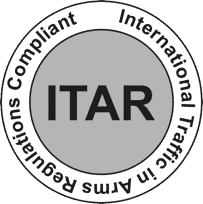Ceramic computer numerical control (CNC) machining employs automated machinery to meticulously shape and machine ceramic materials. This precise technique is reshaping industries by crafting intricate components across various sectors. From lightweight engine parts to sophisticated electronics, its impact resonates in driving innovation and enhancing efficiency within modern industrial applications.
This article explores the transformative impact of ceramic CNC machining on industries and its role in revolutionizing modern industrial applications.
Industrial Applications of Ceramic CNC Machining
These are the uses of automated ceramic machining across various industries:
Aerospace
Ceramic CNC machining produces precisely shaped parts for the aerospace sector. It creates lightweight yet durable engine components, heat-resistant turbine blades, and intricate aerodynamic structures. CNC machining’s significance lies in its ability to produce components with tight tolerances, essential for maintaining safety and efficiency.
Defense
CNC machining enables the production of complex ceramic components with exacting specifications, which is essential for applications such as ballistic armor and missile components. This technique ensures that equipment and systems perform reliably in high-stakes environments where component failure is unacceptable.
Telecommunications
Ceramic CNC machining is vital in crafting high-performance electronic components in telecommunications. This process shapes materials for satellite systems, antennas, and electronic circuitry. It produces components with excellent electrical properties and thermal stability for reliable global connectivity and signal transmission.
Manufacturing
CNC machining enables the production of complex ceramic molds, tooling, and components with high accuracy and repeatability. It helps streamline production processes, reduce waste, and ensure consistent quality in fabricating ceramic parts used in various industries.
Energy
In the energy sector, CNC machining allows for precisely shaping and machining ceramic materials used in high-efficiency solar panels, turbine systems, and energy storage devices. Its significance lies in its ability to produce components with exceptional performance.
Medical
CNC machining facilitates the production of intricate ceramic components used in implantable devices, surgical tools, and biomedical implants. It ensures the precise fabrication of biocompatible ceramic parts, improving patient outcomes and driving innovation in healthcare.
Advancements and Innovations in Ceramic CNC Machining
These are the advancements and innovations of ceramic CNC machine technology, driving progress by producing high-performance components with enhanced precision across industries:
Advanced Precision Machining Techniques
Recent advancements in CNC technology have improved precision machining techniques, which produce intricate and complex ceramic components with exceptionally tight tolerances. This allows the creation of highly efficient electronic devices and systems.
Enhanced Material Compatibility
Innovations in CNC machining have expanded the range of ceramic materials that can be effectively machined, including advanced ceramic silicon nitride and aluminum oxide. This increased material compatibility opens up new possibilities for designing and manufacturing high-performance components in various industries.
Integration of Multi-Axis Machining
Integrating multi-axis machining capabilities in ceramic CNC systems has enabled manufacturers to produce parts with more intricate geometries and complex shapes. This advancement facilitates the creation of customized components tailored to specific industry requirements, which leads to improved product performance.
Automation and Robotics
Automation and robotics have been increasingly integrated into ceramic CNC machining, leading to greater efficiency, higher productivity, and reduced lead times. These innovations enable manufacturers to streamline production processes, minimize human error, and increase overall throughput.
Real-Time Monitoring and Control Systems
Implementing real-time monitoring and control systems in CNC machining allows for continuous monitoring of machining parameters such as temperature, tool wear, and surface finish. This will enable manufacturers to optimize machining processes, improve quality control, and guarantee consistent production of high-quality components.
Choose Quartzite for Guaranteed Quality in Ceramic CNC Solutions!
Experience the precision and reliability of Quartzite’s ceramic CNC machining services. With over 65 years of expertise, we specialize in machining various materials, including ceramics and quartz. Whether you are in the aerospace, defense, or medical industries, we deliver customized solutions with Ship-to-Stock or Just-in-Time deliveries, ensuring top-notch quality at every turn.
Contact us or request a quote now for your precision machining needs!


